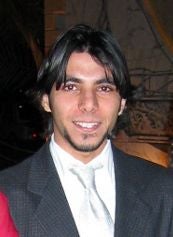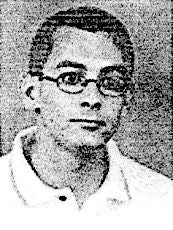| HRW DOcuments on Egypt | FREE Join the HRW Mailing List |
|
Egypt: Homosexual Prosecutions Overturned Internet Arrests, Harassments Continue |
(New York, July 22, 2003)
The acquittal by a Cairo appeals court of eleven men earlier convicted of consensual homosexual conduct is a step forward, but arrests and harassment of men who have sex with men continue in Egypt, Human Rights Watch said today. The appeals court overturned the convictions on July 20.
The men were among sixteen who had been charged in February 2003, when police tapped the phone of a private apartment in the Giza district of greater Cairo after an informer reported that the owner was visited by other men. Police arrested the men whose recorded conversations suggested that they had engaged in homosexual acts. They were charged with the "habitual practice of debauchery," punishable by up to three years' imprisonment under Law 10/1961. "Debauchery" [fujur] in the law is understood to criminalize consensual, non-commercial homosexual sex. The men were tortured in detention. One told Human Rights Watch that they were held in isolation for fifteen days in the women's section of the Giza police station; there, guards beat them three times daily, at every change of shift. Thirteen men eventually appeared at trial; three more in hiding were tried in absentia. Only two were acquitted by the trial court April 17, 2003; the rest received sentences of from one to three and a half years' imprisonment. While overturning the sentences of the eleven men who appealed, Judge Mo'azer al-Marsary said, "We are so disgusted with you, we can't even look at you. What you did is a major sin, but unfortunately the case has procedural errors and the court has to acquit all of you." "We welcome the acquittals," said Long, "but judges have a duty to affirm the rights of the accused rather than engaging in prejudicial rhetoric and hiding behind technicalities." Activists in Egypt report that official solicitation and arrests of suspected gay men over the Internet have continued in recent months. Appeals courts have a record of overturning "debauchery" convictions in Egypt, when based on flimsy evidence or official solicitation. However, some appeals fail. Human Rights Watch is concerned by the continuing imprisonment of Zaki Saad Zaki Abd al-Malak, a 23-year-old resident of Ismailia who was solicited by police over the Internet in January 2002. After corresponding with a man through an MSN chatroom, Malak came to Cairo to meet him; at their prearranged meeting place, Vice Squad officers arrested him. He told human rights activists that police beat him daily during two weeks of detention in the Agouza Police Station. At one meeting with his lawyer, dried blood still crusted his face. On February 7, 2002, Malak was convicted of the "habitual practice of debauchery," as well as advertising "against public morals" and "inciting passers-by … to commit indecent acts." He was sentenced to three years' imprisonment, followed by three years' police supervision. The sentence was upheld on appeal. A further appeal is pending before the Cassation Court, Egypt's highest judicial review body. Meanwhile, Malak is being held in Borg al-Arab prison near Alexandria. On February 17, 2003, a Cairo appeals court upheld a penal sentence against Wissam Toufic Abyad, a 26-year-old Lebanese citizen. Police arrested Abyad on January 16 in Cairo's Heliopolis district after he had arranged to meet with a "Raoul," whom he had met through a gay personals-advertisement site on the Internet. Undercover police and informants have used the nickname "Raoul" in several other cases to solicit suspected homosexual men. The Heliopolis Court of Misdemeanors sentenced Abyad on January 20 to one year and three months' imprisonment, under the same three charges used against Zaki Saad Zaki Abd al-Malak. Abyad remains imprisoned, and is also appealing to the Cassation Court. "It is time to end the arrest and torture of men suspected of homosexual conduct in Egypt," said Long.
|

